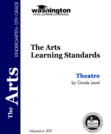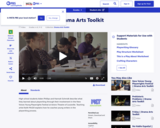William Shakespeare didn’t go to college. If he time-traveled like Dr. Who, he would be stunned to find his words on a university syllabus. However, he would not be surprised at the way we will be using those words in this class, because the study of rhetoric was essential to all education in his day. At Oxford, William Gager argued that drama allowed undergraduates “to try their voices and confirm their memories, and to frame their speech and conform it to convenient action”: in other words, drama was useful. Shakespeare’s fellow playwright Thomas Heywood similarly recalled:
In the time of my residence in Cambridge, I have seen Tragedies, Comedies, Histories, Pastorals and Shows, publicly acted…: this is held necessary for the emboldening of their Junior scholars, to arm them with audacity, against they come to be employed in any public exercise, as in the reading of Dialectic, Rhetoric, Ethic, Mathematic, the Physic, or Metaphysic Lectures.
Such practice made a student able to “frame a sufficient argument to prove his questions, or defend any axioma, to distinguish of any Dilemma and be able to moderate in any Argumentation whatsoever” (Apology for Actors, 1612). In this class, we will use Shakespeare’s own words to arm you “with audacity” and a similar ability to make logical, compelling arguments, in speech and in writing.
Shakespeare used his ears and eyes to learn the craft of telling stories to the public in the popular form of theater. He also published two long narrative poems, which he dedicated to an aristocrat, and wrote sonnets to share “among his private friends” (so wrote Francis Meres in his Palladis Tamia, 1598). Varying his style to suit different audiences and occasions, and borrowing copiously from what he read, Shakespeare nevertheless found a voice all his own–so much so that his words are now, as his fellow playwright Ben Jonson foretold, “not of an age, but for all time.” Reading, listening, analyzing, appreciating, criticizing, remembering: we will engage with these words in many ways, and will see how words can become ideas, habits of thought, indicators of emotion, and a means to transform the world.





